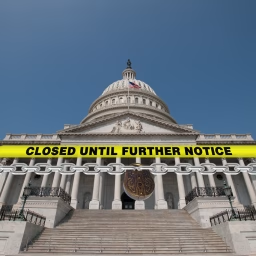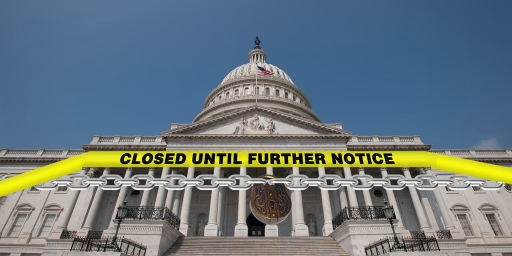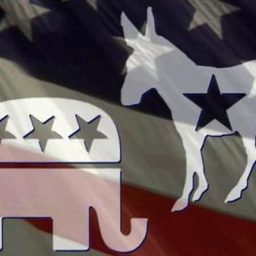Supreme Court Strikes A Blow Against Public Sector Unions
In a 5-4 decision, the Supreme Court has ruled that public sector unions cannot force employees to pay membership fees.
A Busy Two Weeks Ahead For The Supreme Court And Supreme Court Watchers
With two more weeks to go, there are plenty of “big” cases still awaiting the release of a decision.


Supreme Court Set To Hand Down Several Landmark Decisions By End Of June
With one month to go in its term, there’s still a lot on the Supreme Court’s plate.
Trump Seeks to Make Firing Civil Servants Easier and Weaken their Unions
Three Executive Orders signed ahead of the Memorial Day holiday has government employees scrambling.


Supreme Court To Hear Case That Could Deal Major Blow To Public-Sector Unions
Tomorrow, the Supreme Court will hear oral argument in a case that could prove crippling to public employee unions across the nation.


Supreme Court To Rule On Mandatory Fees To Public Sector Unions
In its upcoming term, the Supreme Court will hear a case that is likely to have a significant impact on the powers of public-sector unions.
The Beginning Of The End Of The ‘Conservative’ Supreme Court
Depending on the outcome of the election, the Supreme Court’s just concluded term will most likely be remembered as the point at which the Court’s rightward tilt that began at the end of the Warren Court Era came to an end.
Public Employee Unions Dodge A Bullet Thanks To 4-4 Supreme Court Tie
Thanks to an equally divided Supreme Court, public employee unions won a case they most likely would have lost had Justice Scalia lived.


Supreme Court Appears Poised To Hand Major Defeat To Public Employee Unions
After oral argument today in a high profile case, it appears likely that public employee unions are likely to suffer a major legal defeat later this year.
Obama Administration Appeals Fifth Circuit Immigration Ruling To Supreme Court
The Obama Administration is asking the Supreme Court to review a ruling that kept a hold on last year’s immigration execution action in place.
The Supreme Court Begins A New Term With Several Politically Charged Cases
The marriage equality issue is resolved, but that doesn’t mean the Supreme Court won’t have a lot of high profile cases on its docket over the next eight months.


Scott Walker Dropping Out Of Presidential Race
Once a candidate that many believed could become the Republican nominee, Wisconsin Governor Scott Walker is dropping out of the race for President.
Scott Walker’s Campaign Seems To Be In Serious Trouble
Scott Walker used to have a commanding lead in Iowa, now he’s in 7th place. That’s just another sign of the troubles facing his campaign.
Scott Walker Is Running For President
Wisconsin Governor Scott Walker has formally entered the race for President, but can he overcome his flip-flops and a turn to the hard right?
Scott Walker Set To Enter Presidential Race On July 13th
Wisconsin Governor Scott Walker will be entering the race for President later this month, but it’s unclear if his recent turn to the hard right will help him or hurt him.


Supreme Court To Hear Case Involving Employees Rights And Public Employee Unions
The Supreme Court has agreed to hear a major case about public employee unions that could go a long way toward restraining their power.
Scott Walker Surges In New Iowa Poll
Wisconsin Governor Scott Walker isn’t officially a candidate for President yet, but he’s doing quite well in Iowa anyway.


Scott Walker Surges In Iowa, But How Much Does Iowa Really Matter?
Scott Walker surged to the top of a new poll of Iowa Republicans, but Iowa is not a very good predictor of success in the race for the GOP nomination.


Supreme Court Rules Some Employees Can Opt Out Of Public Employee Unions
The Supreme Court has limited the ability of public employee unions to force people to join their ranks.


Detroit Files Largest Municipal Bankruptcy In History
In a move that was perhaps inevitable, the City of Detroit has filed for Bankruptcy Court protection.
Scott Walker: The GOP’s Sleeper Candidate For 2016?
Scott Walker could be the GOP’s surprise candidate in 2016.
Wisconsin Judge Strikes Down Collective Bargaining Law
The battle over Wisconsin’s public sector union reform continues.

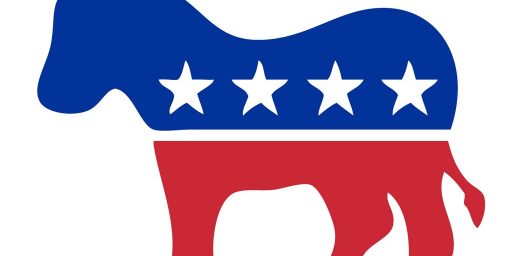
Who’s On The Democratic Bench For 2016?
If not Hillary Clinton or Joe Biden, who might the Democrats have to choose from in 2016?


Scott Walker Survives Recall Election In Wisconsin
A contentious political battle that has lasted a year has come to an end.
Scott Walker Continues To Lead Wisconsin Recall Polling
Barring an upset, Scott Walker looks likely to survive his recall election tomorrow.


Cory Booker’s Kinsley Gaffe And The Relevance Of The Bain Attacks
Yesterday, Cory Booker committed the rookie mistake of saying what was on his mind.
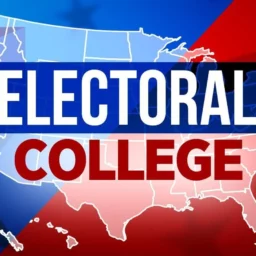
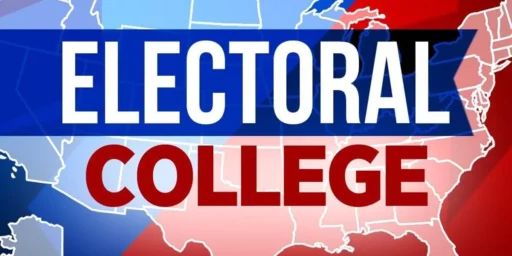
Ohio Voters Overturn Public Union Restrictions
Ohio voters overwhelmingly rejected a Republican law restricting the collective bargaining rights of public employees–and also rebuked the health insurance mandate central to ObamaCare.
The Incoherent Agenda Of Occupy Wall Street
Judging them by their own manifesto, the Occupy Wall Street protesters are pretty silly people.


Andrew Cuomo 2016?
The passage of a new same-sex marriage law has Democrats talking about Andrew Cuomo.


WI Standoff Poised to End (or, Maybe Not–UPDATED)
The Democrats appear ready to come home (or, as per the update, maybe not).
Have Republicans Lost The Public Relations War Over Public Sector Unions?
As the standoff in Wisconsin drags on, there is no sign that the public accepts the argument being made about public sector unions by Governor Scott Walker and other Republicans.
Wisconsin and Practical Politics (Not to Mention Compromise)
Why can’t the Wisconsin Stand-off end in compromise?
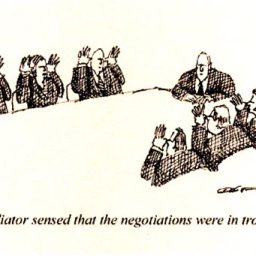

Labor – Management Culture Clash
Labor and management are not simply adversaries at the negotiating table; they represent two very different cultures, if not social classes.
Republicans vs. The Unions
Scott Walker’s attempt to crush the Wisconsin public employee unions may be the first wave in a fight to elect Republican governors in 2012.
Poll: Majority Opposes Laws Restricting Public Employee Unions
A new national poll suggests that moves to restrict the collective bargaining rights of public sector unions are not popular with the public at large:


Federal Workers Earn Twice Private Sector Counterparts?
The average federal government employee earns twice as much as the average private sector worker. An outrage? Not so much.
